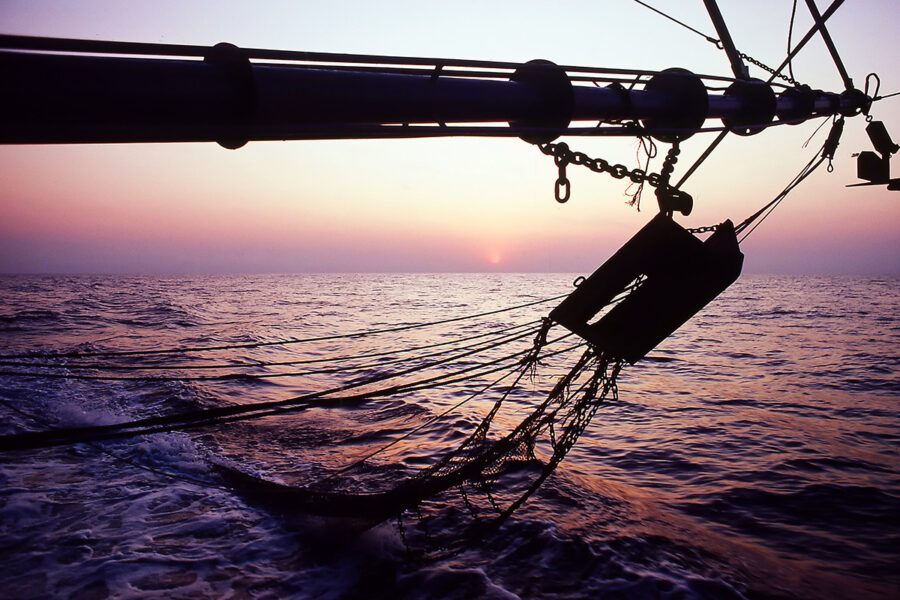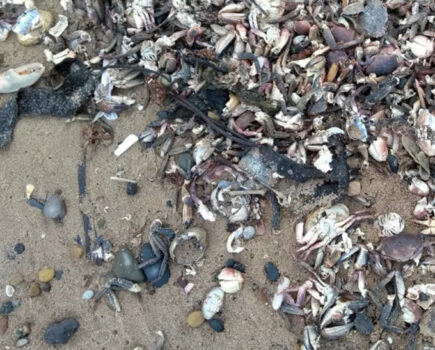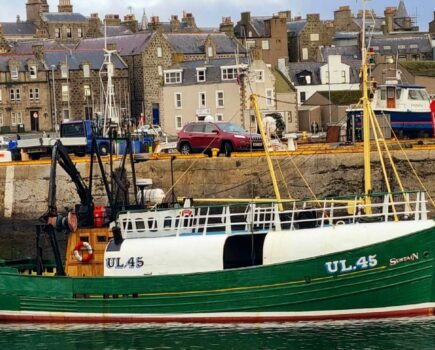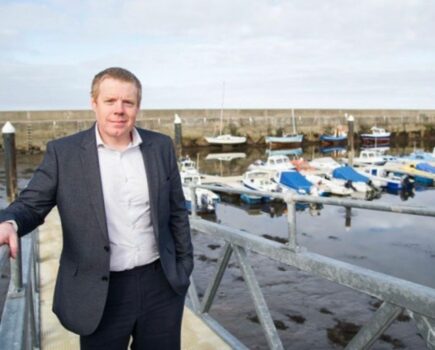A ban on bottom trawling in current UK MPAs makes no sense – though that doesn’t trouble NGOs more concerned with headlines than facts
By Michel Kaiser, The Lyell Centre, Heriot-Watt University
The Private Members’ Bill seeking to ban bottom trawling in the Marine Protected Areas around the UK is a misguided act of stupidity, arising from the worrying tendency of many MPs to insufficiently research the one-sided ‘facts’ that are presented to them by lobbyists.
Few will remember, or even be aware, that the Women’s Institute (WI) debated just this motion in June 2008 in the O2 arena in Liverpool, in front of a packed audience of over 5,000 representatives of the WI. As a member of the board of Seafish at that time, I had travelled the length of Wales to present the known science about this complex topic to different chapters of the WI.
In the main, by the time I ended each meeting, having judged more cake competitions than I care to remember, most (but not all) understood the complexity of the issue and the consequences of removing this essential source of food production and replacing it with other fishing techniques that have their own (potentially worse) environmental problems.
I didn’t expect us to win this debate. Phil MacMullen was the Seafish staff member given the weighty task of stepping onto the stage of the O2 and putting the case for bottom trawling. Greenpeace sent on its best professionally trained staffer, who ranted at the audience in the language of doom: ‘destructive, crushing, pulverising’ – a thesaurus of negativity. Phil gave a steady and calm delivery of facts, and pointed out the myths that surround bottom trawling.
At the end, WI representatives from fishing communities around the UK repeatedly took their turn on the open floor and articulated their anger that this motion was ever put forward, pointing out that it arose from the Home Counties, and that folk from the neighbourhood had no knowledge of the vital nature of fishing for communities in Cornwall, Pembrokeshire, Kilkeel, Mallaig and Shetland. The motion was only just thrown out, with 52% of delegates voting against.
That was 16 years ago. In that time, our scientific understanding of the consequences of bottom trawling and how to manage it has grown to a point where the International Council for the Exploration of the Seas (ICES) now issues advice annually on the status of seabed ecosystems in response to fishing. Thus the science is not in dispute; it is well understood, yet continues to be ignored by NGOs whose agenda is simply to ban all forms of bottom trawling.
The other fact which is deliberately overlooked by these NGOs, and in this case MPs, is that trawling in Marine Protected Areas is often demonstrably compatible with the objectives for which the MPA was created in the first place. The MMO and JNCC have both provided advice and recommendations for activities that occur within the various different varieties of MPA around the UK coastline – they have already assessed which activities are, or are not, compatible with the objectives of the MPA.
Some MPAs are designated solely to protect seabirds, not the seabed – hence bottom trawling will very rarely have a conflict with this objective. Other MPAs are designated primarily to protect mobile predators like dolphins or seals; again, there is only a tenuous link between trawling and the protection of these species. Often, static gear – or tourists harassing these animals on jet skis – is a much greater threat to their conservation status. Where bottom fishing is considered incompatible is when seabed organisms such as the pink seafans in Lyme Bay are the objective of the MPA protection.
Of course, all of this nuance is inconvenient and gets in the way of a nice simplistic campaign. Worse still, the NGOs often claim that bottom trawling could be replaced by the use of ‘more selective’ static gear. This might be true for certain areas, but what they overlook is the increased threat of entanglement for birds, porpoises and other marine life – species that have a much more important conservation status than worms living in the seabed.
We also know that the food production efficiency of bottom trawling is generally better than static gears; trawl-caught fish have lower CO emissions per kilogram of food landed. Every fishing activity has its own environmental impacts, and every sector is striving in one way or another to improve catch and environmental efficiency – hence when I see Bally Philp being cited to back up the claims of the MP in question, I despair.
The problem of gear conflict can be solved by the industry, and does not need the intervention of NGOs like Oceana. There are plenty of examples of the fishing industry zoning the sea for use by different fishing sectors, the Inshore Potting Agreement in Devon being just one example. If the static-gear sector thinks Oceana is its friend, it is badly mistaken – seafood doesn’t fit on a vegan agenda.
Don’t be conned. If Oceana manages to drive a wedge between the different sectors of the seafood industry, the future looks dark indeed. If the ban does go through, think what will happen. The surviving trawl businesses will invest in static gear, putting even more pressure on static-gear grounds, leading to the worst possible outcome for everyone involved and the marine environment.
FIND OUT MORE
For an up to date summary of the facts about global bottom trawling, see Michel Kaiser’s Youtube video here.
Ray Hilborn et al, 2023, ‘Evaluating the sustainability and environmental impacts of trawling compared to other food production systems’, ICES Journal of Marine Science, 80 (6): bit.ly/411dqBM
This story was taken from the latest issue of Fishing News. For more up-to-date and in-depth reports on the UK and Irish commercial fishing sector, subscribe to Fishing News here or buy the latest single issue for just £3.50 here.
Sign up to Fishing News’ FREE e-newsletter here.








